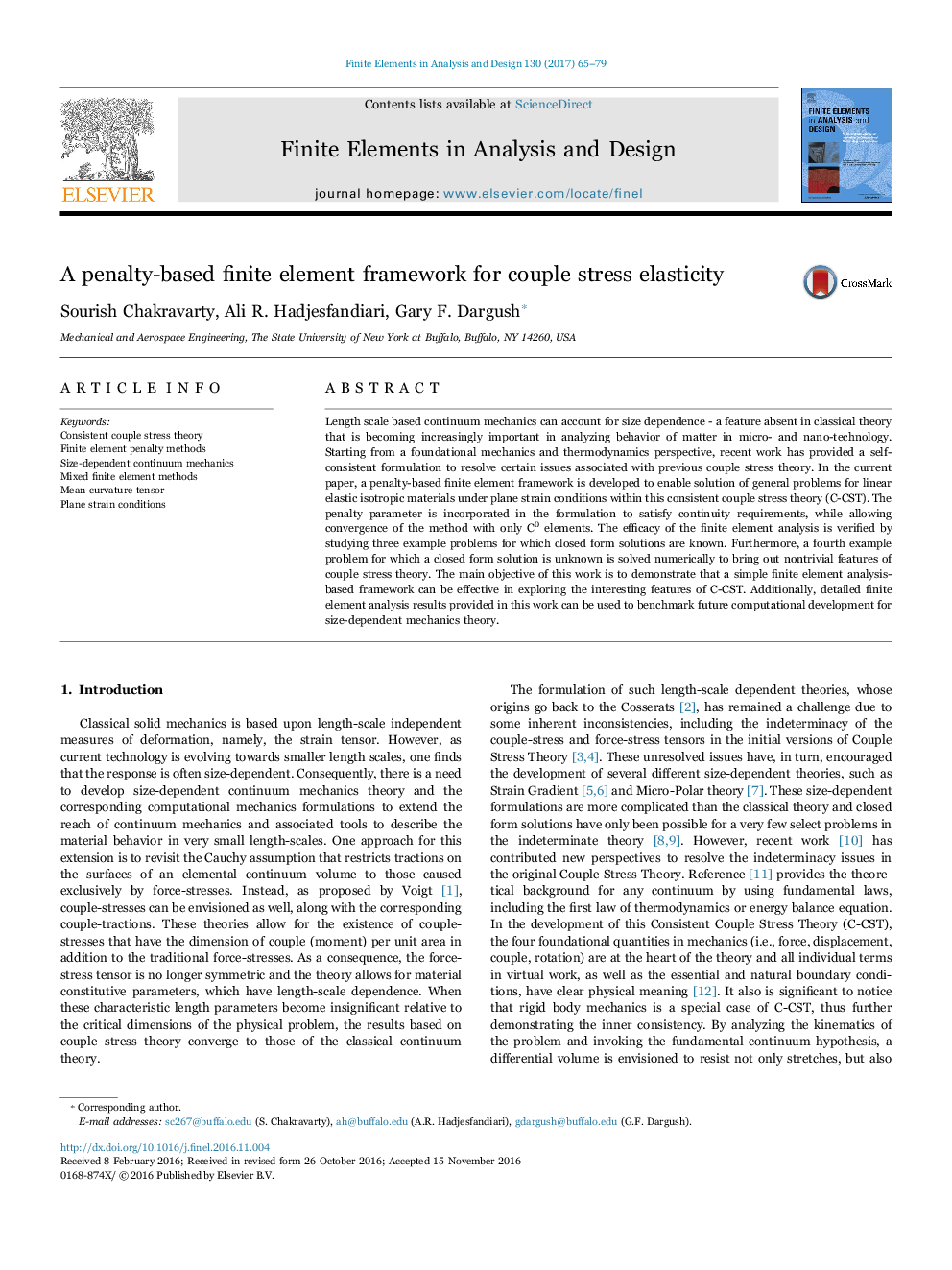ترجمه فارسی عنوان مقاله
چارچوب عنصری پایه مبتنی بر مجازات برای کشش چندگانه
عنوان انگلیسی
A penalty-based finite element framework for couple stress elasticity
| کد مقاله | سال انتشار | تعداد صفحات مقاله انگلیسی |
|---|---|---|
| 157356 | 2017 | 15 صفحه PDF |
منبع

Publisher : Elsevier - Science Direct (الزویر - ساینس دایرکت)
Journal : Finite Elements in Analysis and Design, Volume 130, August 2017, Pages 65-79
ترجمه کلمات کلیدی
تئوری تنش زای دائمی، روش نقض عنصر محدود، مکانیک پیوسته وابسته به اندازه، روش های عنصر محدود متوسط تانسور انحنای، شرایط فشار هواپیما،
کلمات کلیدی انگلیسی
Consistent couple stress theory; Finite element penalty methods; Size-dependent continuum mechanics; Mixed finite element methods; Mean curvature tensor; Plane strain conditions;

